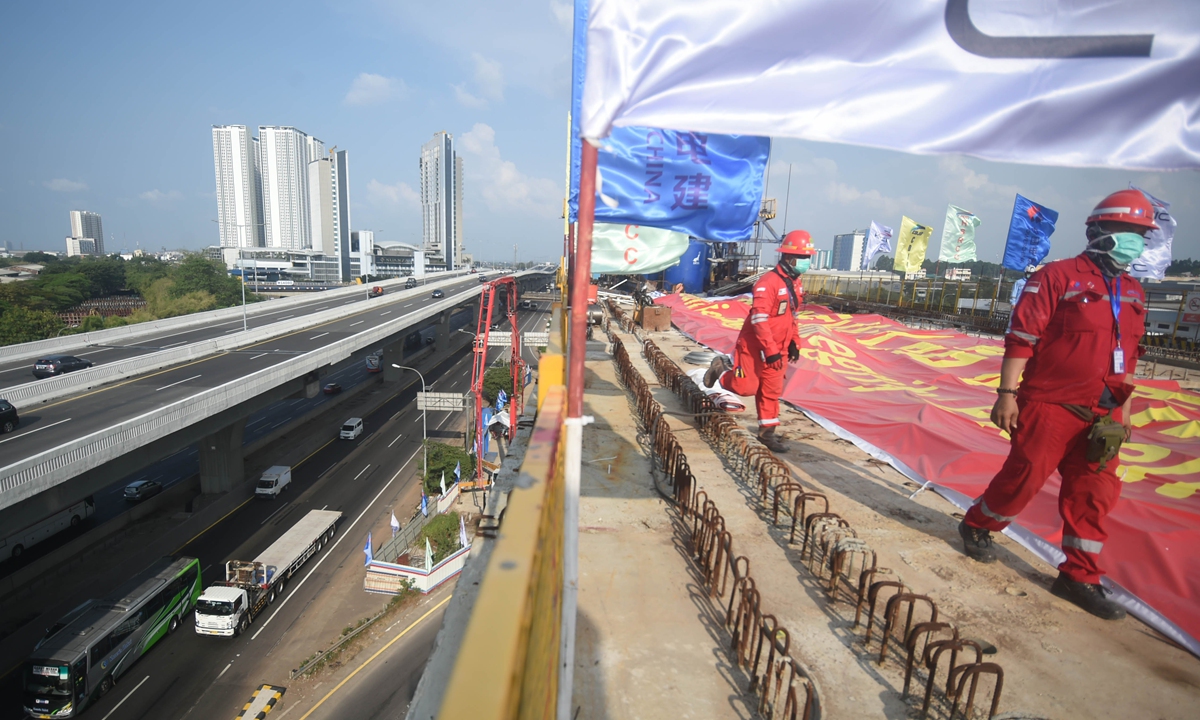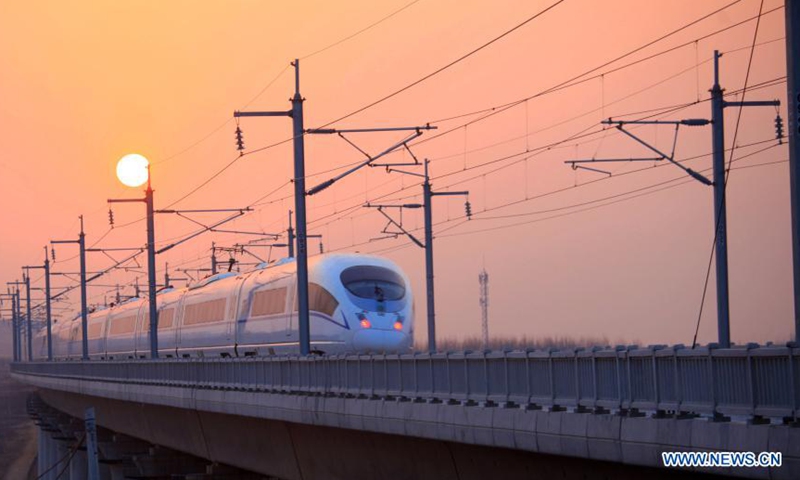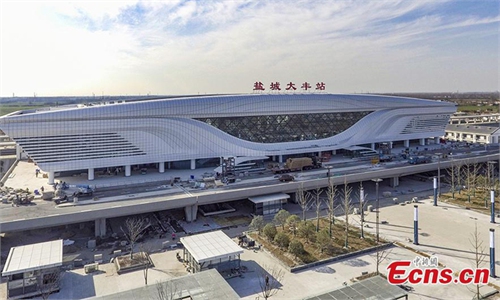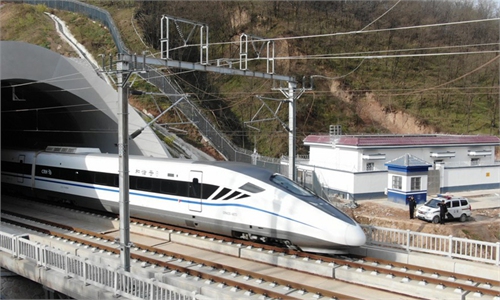
Workers walk on a beam at the construction site of the China-built Jakarta-Bandung high-speed railway (HSR) in Bekasi, West Java province, Indonesia, on August 15, 2020. Photo: Xinhua
The Chinese high-speed railway sector will aim to maintain its world-leading status in the new decade via a transformation plan that emphasizes smart and green technologies and high-quality service, leading Chinese railway experts told the Global Times on Wednesday.
The comments came as top Chinese leaders underlined high-speed rail as proof of China's independent innovation.
Jia Limin, a leading expert in high-speed trains and a professor at Beijing Jiaotong University, said building on its existing success, China's high-speed railway sector will remake itself with truly independent innovation, featuring smart and green technologies and offering high-quality service to all clients, including those from abroad.
Since the country launched its first bullet train service in 2007 and embarked on a successful journey to own the world's most complicated high-speed rail network, which is led by a flurry of home innovations by Chinese scientists and engineers.
Total length of high-speed railways in China hit 37,900 kilometers at the end of 2020, up 2,900 kilometers from 2019, and almost double the length in 2015, according to the China State Railway Group.

A bullet train runs through Pingyi County in Linyi City of east China's Shandong Province, Jan. 19, 2021.Photo:Xinhua
Jia, who briefed top leaders on the technological strengths of Chinese high-speed trains in June 2016, noted that after a period of rapid development, China's high-speed rail demonstrated apparent advantages in terms of adaptability, a full and complete industry chain, and an innovation system that could provide sustained impetus for innovation going forward.
In other words, China's bullet trains could run perfectly in diverse climates and geographies, China could build bullet trains almost entirely relying on its own strengths, and China had the world's leading labs and human capital for making bullet trains.
In terms of comprehensive strengths, Jia said China is in the top league alongside Japan and Germany.
As China's high-speed rail sector moves forward, it needs to tackle bottlenecks in basic technologies in information and automation, as well as basic materials and parts.
"A project of using domestic chips and software in the country's high-speed rail system is already in the research and development stage," Jia told the Global Times on Wednesday.
Adopting domestic technologies means security for the high-speed railway system, and China has an inherent advantage as it has the BeiDou Satellite Navigation System, an alternative to the GPS.
Sun Zhang, a railway expert and professor at Shanghai Tongji University, told the Global Times on Wednesday that minor outages had occurred in the past due to using foreign technologies.
Sun said continuing to develop the high-speed rail system, with more and better transit systems to meet China's vast needs in its economic development, especially with a focus on bridge China's regional economic disparities, could be the process in which the sector elevates itself to a new level of excellence.
Under a national blueprint, China will extend the total length of its rail system to 200,000 kilometers and its high-speed rail system to 70,000 kilometers by 2035.
Those lines will form a modern transit system with high-speed rail systems as the backbone and provide a worthy instrument in China's pursuit to build itself into a modern country.
"Smart technologies that guarantee the utmost safety and efficiency, greenness that offers the best development of low-carbon transportation options to the mass public, and high-speed cargo trains that can be rivals to cargo planes would be some of the hallmarks of the next stage of development," Sun said.




